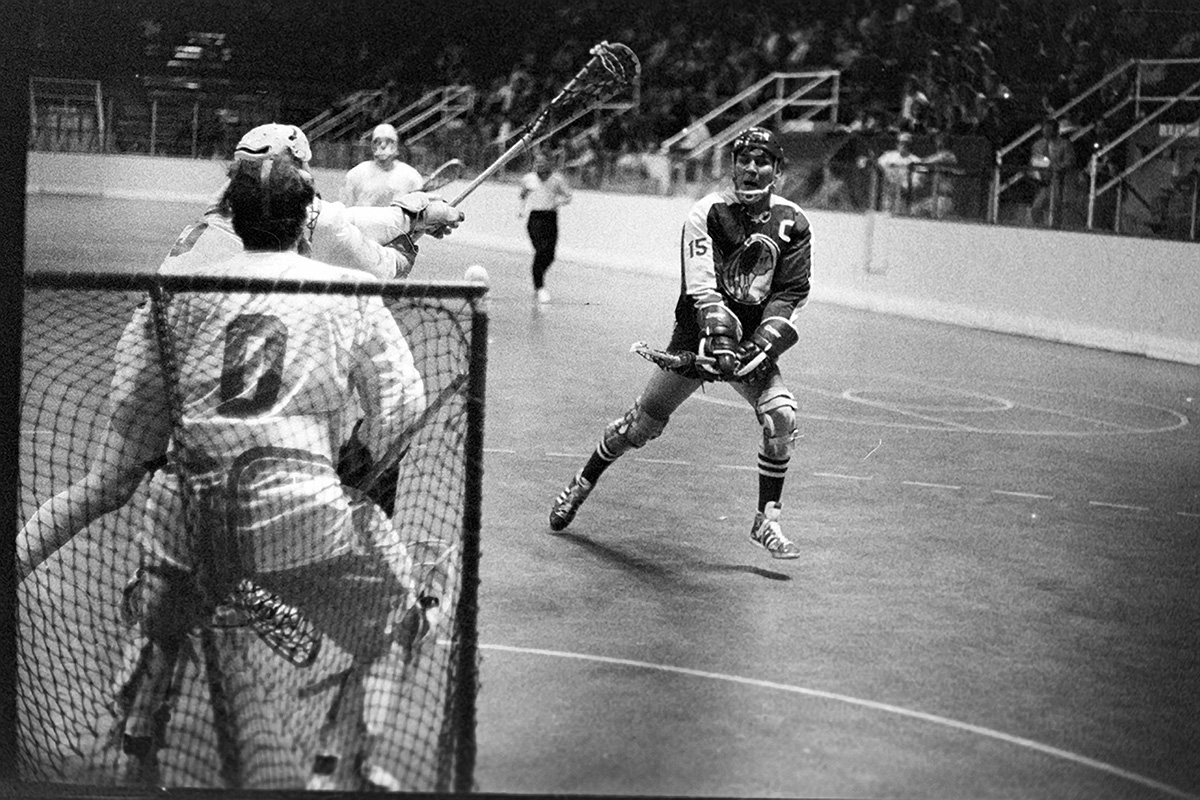Browse "People"
-
Article
Gaspar Corte-Real
Gaspar Corte-Real, explorer (b 1450?; d 1501). A native of the Azores, he initiated Portuguese claims in the North Atlantic. It is thought that he reached Greenland and worked his way south to Newfoundland in 1500, and that he
"https://development.thecanadianencyclopedia.ca/images/tce_placeholder.jpg?v=e9dca980c9bdb3aa11e832e7ea94f5d9" // resources/views/front/categories/view.blade.php
https://development.thecanadianencyclopedia.ca/images/tce_placeholder.jpg?v=e9dca980c9bdb3aa11e832e7ea94f5d9
-
Article
Gaspard-Joseph Chaussegros de Léry
Gaspard-Joseph Chaussegros de Léry, military engineer (born 3 October 1682 in Toulon, France; died 23 March 1756 in Quebec City, QC). Chaussegros de Léry contributed to the development of New France by fortifying the colony’s towns, namely Quebec and Montreal. His relief maps of Quebec and Montreal are still regarded as accurate models of these cities. Some consider Chaussegros de Léry the father of the first truly Canadian architecture. (See also Architectural History: The French Colonial Regime.)
"https://d2ttikhf7xbzbs.cloudfront.net/pic.jpg" // resources/views/front/categories/view.blade.php
https://d2ttikhf7xbzbs.cloudfront.net/pic.jpg
-
Article
Gaston Allaire
(Joseph Georges-Émile) Gaston Allaire. Musicologist, teacher, organist, pianist, composer, born Berlin, NH, 18 Jun 1916; died 15 January 2011; B MUS (Montréal) 1947, MA (Connecticut) 1956, PH D musicology (Boston) 1960.
"https://development.thecanadianencyclopedia.ca/images/tce_placeholder.jpg?v=e9dca980c9bdb3aa11e832e7ea94f5d9" // resources/views/front/categories/view.blade.php
https://development.thecanadianencyclopedia.ca/images/tce_placeholder.jpg?v=e9dca980c9bdb3aa11e832e7ea94f5d9
-
Article
Gaston Arel
Gaston Arel. Organist, teacher, b Trois-Rivières, Que, 10 Sep 1928; lauréat in organ (AMQ) 1948.
"https://development.thecanadianencyclopedia.ca/images/tce_placeholder.jpg?v=e9dca980c9bdb3aa11e832e7ea94f5d9" // resources/views/front/categories/view.blade.php
https://development.thecanadianencyclopedia.ca/images/tce_placeholder.jpg?v=e9dca980c9bdb3aa11e832e7ea94f5d9
-
Article
Gaston Brisson
Gaston Brisson, pianist, composer, arranger, actor (born 5 December 1940 in Pointe-au-Père, QC; died 17 February 2019 in Rimouski, QC). BA (Bathurst) 1962, B MUS (Montreal) 1964, M MUS (Montreal) 1966.
"https://d2ttikhf7xbzbs.cloudfront.net/Piano_de_la_salle_Henri-Gagnon.jpg" // resources/views/front/categories/view.blade.php
https://d2ttikhf7xbzbs.cloudfront.net/Piano_de_la_salle_Henri-Gagnon.jpg
-
Article
Gaston Germain
Gaston Germain, bass, teacher, administrator (born 1 March 1933 in Québec City, QC; died 26 July 2015 in Montréal, QC). Lauréat (AMQ) 1960, premier prix voice (CMQ) 1961. An accountant 1951-7, he studied voice 1957-61 at the CMQ with Ria Lenssens and Raoul Jobin.
"https://development.thecanadianencyclopedia.ca/images/tce_placeholder.jpg?v=e9dca980c9bdb3aa11e832e7ea94f5d9" // resources/views/front/categories/view.blade.php
https://development.thecanadianencyclopedia.ca/images/tce_placeholder.jpg?v=e9dca980c9bdb3aa11e832e7ea94f5d9
-
Article
Gaston Lepage
This article is currently being translated. It will be available shortly. Please check back at a later date or add it to your saved articles.
"https://development.thecanadianencyclopedia.ca/images/tce_placeholder.jpg?v=e9dca980c9bdb3aa11e832e7ea94f5d9" // resources/views/front/categories/view.blade.php
https://development.thecanadianencyclopedia.ca/images/tce_placeholder.jpg?v=e9dca980c9bdb3aa11e832e7ea94f5d9
-
Article
Gaston Miron
Gaston Miron, poet, publisher (born 8 January 1928 at Sainte-Agathe-des-Monts, QC; died 14 December 1996 in Montréal, QC). An Officer of the National Order of Québec and a Commandeur de l’ordre des Arts et des Lettres, one of France’s highest honours.
"https://d2ttikhf7xbzbs.cloudfront.net/media/media/057a5aa7-87a9-4d79-9175-8e49f64af5c2.jpg" // resources/views/front/categories/view.blade.php
https://d2ttikhf7xbzbs.cloudfront.net/media/media/057a5aa7-87a9-4d79-9175-8e49f64af5c2.jpg
-
Article
Gathie Falk
Gathie Falk, artist (b at Alexander, Man 31 Jan 1928). A multimedia artist with a strong national reputation, Gathie Falk began a successful artistic career in 1965 when she left teaching to study art.
"https://development.thecanadianencyclopedia.ca/images/tce_placeholder.jpg?v=e9dca980c9bdb3aa11e832e7ea94f5d9" // resources/views/front/categories/view.blade.php
https://development.thecanadianencyclopedia.ca/images/tce_placeholder.jpg?v=e9dca980c9bdb3aa11e832e7ea94f5d9
-
Article
Gatien Lapointe
Gatien Lapointe, poet, professor, publisher (b at Sainte-Justine-de-Dorchester, Qué 18 Dec 1931; d at Trois-Rivières, Qué 15 Sept 1983). He studied at the Petit Séminaire de Québec, the École des arts graphiques in Montréal, Université de Montréal (MA), the Collège de France and the Sorbonne.
"https://development.thecanadianencyclopedia.ca/images/tce_placeholder.jpg?v=e9dca980c9bdb3aa11e832e7ea94f5d9" // resources/views/front/categories/view.blade.php
https://development.thecanadianencyclopedia.ca/images/tce_placeholder.jpg?v=e9dca980c9bdb3aa11e832e7ea94f5d9
-
Article
Gauthier Guité Roy
The firm of Gauthier Guité Roy was formed in 1966 when the architect Jean-Marie Roy (b at St-Léon de Standon 1925-) joined Paul Gauthier (b at Gaspé 1935- ), and Gilles Guité (b at Bonaventure 1935 ), two young graduates from the Université de Montréal and partners since 1962.
"https://development.thecanadianencyclopedia.ca/images/tce_placeholder.jpg?v=e9dca980c9bdb3aa11e832e7ea94f5d9" // resources/views/front/categories/view.blade.php
https://development.thecanadianencyclopedia.ca/images/tce_placeholder.jpg?v=e9dca980c9bdb3aa11e832e7ea94f5d9
-
Article
Gayle Young
Young, Gayle. Composer, writer, editor, designer of musical instruments, performer, b St Catharines, Ont, 22 Mar 1950; BFA (York) 1977.
"https://development.thecanadianencyclopedia.ca/images/tce_placeholder.jpg?v=e9dca980c9bdb3aa11e832e7ea94f5d9" // resources/views/front/categories/view.blade.php
https://development.thecanadianencyclopedia.ca/images/tce_placeholder.jpg?v=e9dca980c9bdb3aa11e832e7ea94f5d9
-
Article
Gaylord Powless
Gaylord Powless, lacrosse player (born 1 December 1946 in Six Nations of the Grand River, ON; died 28 July 2001 in Ohsweken, ON). Gaylord Powless was a Kanyen’kehà:ka (Mohawk) box lacrosse player who transcended the game to become one of Canada’s most famous athletes. Powless lived most of his life in Six Nations of the Grand River, near Brantford, Ontario. He became the signature player on the Oshawa Green Gaels’ junior lacrosse dynasty of the 1960s and shattered the Ontario junior league scoring record in his sophomore year with the team. The Gaels won the Minto Cup, Canada’s national junior lacrosse championship, in all four years that he played at the junior level. Powless also won the 1971 Mann Cup, which is emblematic of the Canadian senior lacrosse champions, and was a marquee player in three different professional leagues. Powless and his father, Ross, are both members of the Canadian Lacrosse Hall of Fame and the Ontario Lacrosse Hall of Fame. In 2017, Powless was elected to Canada’s Sports Hall of Fame. In 2024, Powless was inducted into the North American Indigenous Athletics Hall of Fame.
"https://d2ttikhf7xbzbs.cloudfront.net/media/media/9b8d7ac7-ec44-4a9e-b25f-fcc494d26d0c.jpg" // resources/views/front/categories/view.blade.php
https://d2ttikhf7xbzbs.cloudfront.net/media/media/9b8d7ac7-ec44-4a9e-b25f-fcc494d26d0c.jpg
-
Article
Gédéon Ouimet
Gédéon Ouimet, premier of Québec (b at Ste-Rose, Qué, 2 June 1823; d at Saint-Hilaire-de- Dorset, Qué 23 Apr 1905). Conservative premier for 19 months (February 1873 to September 1874), he was forced to resign by financial scandals.
"https://development.thecanadianencyclopedia.ca/images/tce_placeholder.jpg?v=e9dca980c9bdb3aa11e832e7ea94f5d9" // resources/views/front/categories/view.blade.php
https://development.thecanadianencyclopedia.ca/images/tce_placeholder.jpg?v=e9dca980c9bdb3aa11e832e7ea94f5d9
-
Article
Gena Branscombe
Gena Branscombe, composer, conductor (b at Picton, Ont 4 Nov 1881; d at New York City, NY 26 July 1977).
"https://development.thecanadianencyclopedia.ca/images/tce_placeholder.jpg?v=e9dca980c9bdb3aa11e832e7ea94f5d9" // resources/views/front/categories/view.blade.php
https://development.thecanadianencyclopedia.ca/images/tce_placeholder.jpg?v=e9dca980c9bdb3aa11e832e7ea94f5d9
